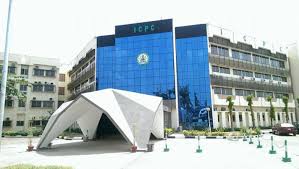The Independent Corrupt Practices and Other Related Offences Commission (ICPC) has called on local government officials to uphold transparency and accountability in managing public funds, following the Supreme Court’s ruling on financial autonomy for councils.
ICPC Secretary, Mr Clifford Oparaodu, made the appeal during a capacity-building workshop themed “Local Government Accountability Framework in Nigeria” held on Monday in Lagos.
Oparaodu said the Supreme Court’s decision marked a major milestone in strengthening democracy and good governance.
“The grant of autonomy comes with its own challenges, which is why we are here today,” he said. “We all have a collective duty to ensure that the authority given to local governments is exercised responsibly. Privilege without discipline can easily lead to abuse.”
He commended the collaboration among federal agencies including the Fiscal Responsibility Commission (FRC), Code of Conduct Bureau (CCB), Public Procurement Bureau (PPB), and the Federal Ministry of Justice, noting that the joint effort was designed to reinforce ethical leadership and public finance management.
According to him, “Some actions taken in office, even without intent, can amount to breaches of existing laws. After today, no one can claim ignorance, because ignorance of the law is not an excuse.”
He explained that the synergy among the five agencies was a unified message that anti-corruption and accountability institutions were working together to ensure integrity in public administration.
“Each agency has its own role: some advisory, some enforcement. The ICPC’s role is particularly coercive; we can train, guide, and, when necessary, prosecute,” he said.
Oparaodu urged participants to cascade lessons learned to their respective local government areas, adding that the training aimed to promote responsible governance and strengthen public trust.
Similarly, ICPC Director, Mr Olusegun Adigun, urged officials to strengthen accountability, build institutional capacity, and uphold integrity in service delivery. He stressed that effective local governance directly enhances citizens’ quality of life.
He referenced the landmark Supreme Court judgment of July 11, 2024, which ruled that state governments’ control over local government funds was unconstitutional and mandated direct allocation of federal funds to all 774 councils.
Executive Chairman of the FRC, Mr Victor Muruako, also called for stronger transparency mechanisms at the local level, describing councils as “the most critical tier of governance for national development.”
Muruako, a former local government chairman, lauded President Bola Tinubu for his commitment to restoring autonomy to local governments and implementing the court’s judgment.
Lagos State Coordinator of the Rule of Law and Anti-Corruption (RoLAC) Programme, Mrs Ajibola Ijimakinwa, said the workshop was timely, adding that it provided practical strategies for improving transparency and integrity in councils.
She reaffirmed RoLAC’s commitment to supporting institutional reforms and citizen engagement for effective governance.
A representative of the Bureau of Public Procurement (BPP), Mr Mokuolu Adesina, urged local governments to publish clear evaluation criteria during public procurement processes to avoid ambiguity. He added that evaluators should possess relevant expertise and committee membership should be rotated to ensure fairness.
The event was supported by international partners including the International Institute for Democracy and Electoral Assistance (IDEA) and the European Union.
(NAN)


